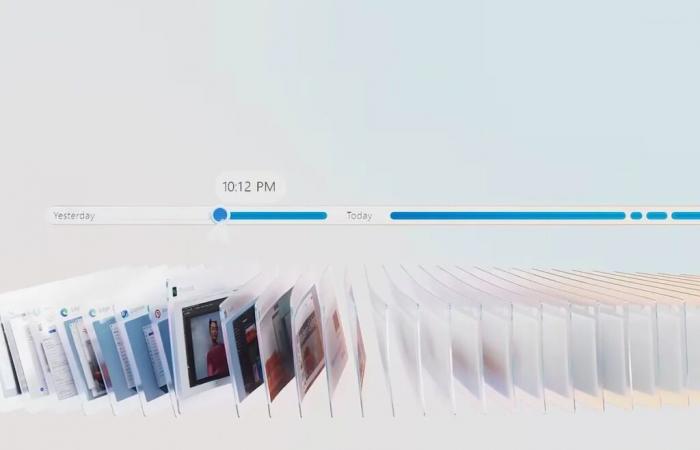Released through the door after huge security flaws were discovered last summer, Recall returns through the window – literally, since it is integrated into the last update of Windows 11, at least in the countries where it is welcome. Europe, for the moment. is spared.
Released by the door after huge security flaws were discovered last summer, Recall returns through the window – literally, since it is integrated into the last update of Windows 11, at least on computers from countries where it is welcome. Europe, for the moment, is spared.
1 299,99€
1 999,99€
A stock
Buy on fnac.com
-Safeguards put in place to avoid controversy
Proudly presented by Microsoft a year ago and hated by many observers who see it only as a mass monitoring tool whose personal interest seems limited, Recall finally takes its first steps on compatible compatible compatibles – the artificial intelligence of Microsoft.
Probably wishing to avoid a new controversy, while hoping to be able to launch its functionality in Europe, Microsoft explains in Windows 11 version notes that Recall is indeed deactivated by default. It will be up to users to go to the settings of their machine to activate this exhaustive archiving option of the system. Also, no data is supposed to be sent to the servers of the company; Everything is stored locally, and encrypted via Windows Hello.
As a reminder, the Recall function proposes to take screenshots almost every second of what is happening on your computer, then to have the content analyzed by AI. The goal? Being able to find in an instant all the documents which contain the word “Fnac” (at random).
Why does Recall functionality worry?
If we easily conceive of the practical aspect of having an “external brain” capable of remembering absolutely everything we do on our computer, it is difficult not to qualify recall of glorified surveillance functionality.
Self-surveillance, now that the data is stored locally, but Microsoft’s setbacks in terms of cybersecurity concerning this functionality does not frankly give what to offer its full confidence in Recall. As a reminder, researchers had managed to consult the recall history of a computer without having to authenticate, and particularly sensitive data such as passwords or credit card numbers were stored in clear on the preliminary versions of the tool.
We bet that Microsoft made sure to offer, this time, a more successful and safe version of its tool, which could by force in the habits of some and some. In Europe, in any case, Microsoft will still have to produce evidence that Recall does indeed respect the GDPR before being able to consider a launch.








